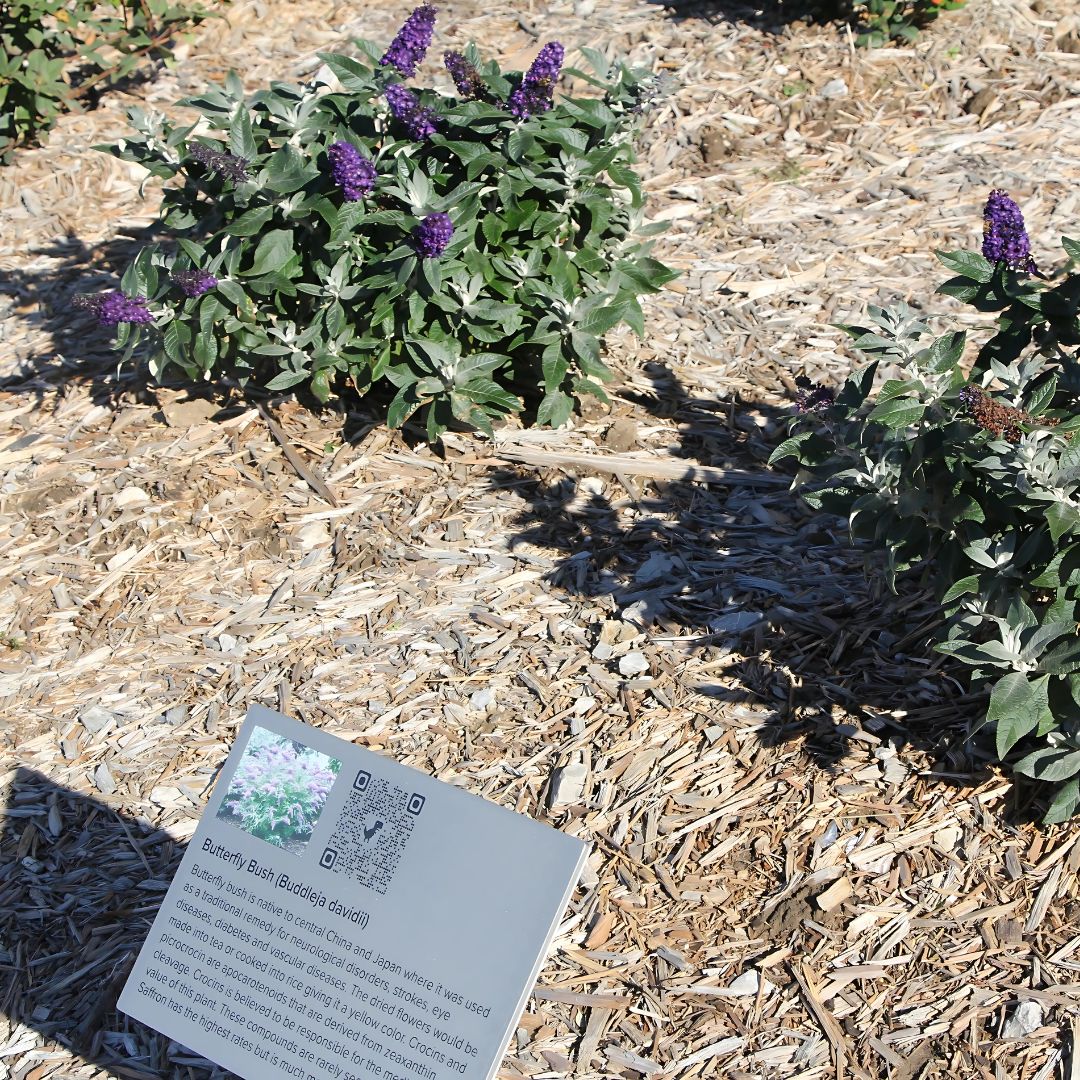Many of today’s pharmaceutical drugs are derived from plant compounds, including some of the most common medications in the U.S. At Kansas City University (KCU), a new medicinal garden on the Kansas City campus is inspiring students to explore the connection between plants and medicine. Through this innovative space, students, faculty and visitors can delve into the history of medicinal plants and their role in shaping modern medicine.
Reflecting the University’s osteopathic principles, the garden outside the Center for Medical Education and Innovation (CMEI) emphasizes the link between nature and healing. More than just than a decorative space, it serves as a hands-on classroom for students and faculty as they explore the history of medicinal plants and their influence on modern pharmacology.
KCU’s own horticulturalist and grounds team member, Jay Pirtle, brought the medicinal garden to life. Pirtle’s love for plants began early, influenced by family members who worked in plant nurseries. After studying horticulture at Oklahoma State University, Pirtle brought their expertise to KCU viewing the medicinal garden as a chance to share their knowledge of plants and support campus wellness. “Plants have always played an important role in medicine,” Pirtle explains. “Many of the drugs we use today are based on compounds found in nature. Learning about these plants helps us understand how medical science has developed.”
Currently, the KCU - Kansas City Campus medicinal garden is maintained by the facilities and grounds crew. Looking ahead, Pirtle hopes to create opportunities for student volunteers to assist with the garden.
“While these plants don’t require much upkeep, there’s always something to do,” Pirtle remarked.
Ziad Sayed, a second-year medical student who volunteers at KCU’s community garden, said, “The medicinal properties of plants amaze me. This garden has inspired me to incorporate plant-based health into my future practice.”
In addition to its educational value, the medicinal garden also creates new possibilities for research on medicinal plants. Abdulbaki Agbas, PhD, professor of Biosciences, studies neurodegenerative diseases and sees the garden as an opportunity for students to explore how plants can impact brain health. “Medicinal plant studies involve knowledge from botany, chemistry and pharmacology,” Agbas explains. This approach encourages students to make connections between natural compounds and human health”
Two well-known medicinal plants featured in the garden include:
1. Coneflower (Echinacea purpurea) – Renowned for its anti-inflammatory properties, this plant has long been valued in traditional medicine. It remains a trusted natural remedy for a variety of ailments, including snake bites, skin disorders, seizures, and chronic arthritis.
2. Butterfly Bush (Buddleja davidii) – Native to China and Japan, the butterfly bush is utilized for treating neurological disorders, stroke recovery, eye diseases, and diabetes. It contains crocin, a compound also found in saffron, known for its medicinal effects.
Through the medicinal garden, KCU teaches students the value of integrating traditional plant knowledge into modern medical science. This unique garden is more than a collection of plants; it’s a place where students can learn to appreciate the full spectrum of healing with medicinal plants.
KCU joins a growing trend among medical schools in creating educational spaces focused on medicinal plants. Institutions like Cornell University and the University of Kansas offer similar campus-based programs dedicated to medicinal plant gardens.
Visit the medicinal garden outside the CMEI to learn more. Don’t forget to scan the QR codes on-site for detailed insights into the medicinal plants featured!
References
· U.S. Forest Service. Medicinal botany. U.S. Department of Agriculture.
· Kansas Biological Survey. Native medicinal plant garden. University of Kansas. https://biosurvey.ku.edu/native-medicinal-plant-garden
· Cornell Botanic Gardens. Robison Herb Garden. Cornell University. https://cornellbotanicgardens.org/location/robison-herb-garden/
_20241120122905.png)


_20231215165644_0.png?w=140&h=140)
_20240326160031_0.png?w=140&h=140)
(0) Comments